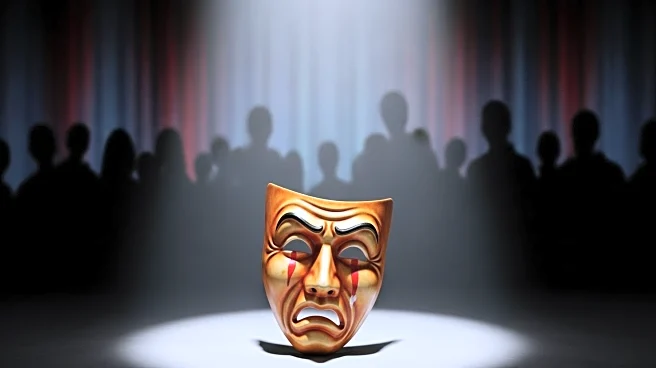What's Happening?
A comedy festival in Riyadh, Saudi Arabia, billed as the world's largest, has attracted prominent comedians such as Aziz Ansari, Bill Burr, Dave Chappelle, and Kevin Hart. However, the event has sparked criticism from human rights advocates and some comedians, who argue that the festival is an attempt by Saudi Arabia to improve its international image despite ongoing human rights abuses. The festival is part of Saudi Arabia's Vision 2030 initiative, aimed at diversifying the economy and establishing the country as a cultural hub. Critics, including comedian Marc Maron, have voiced concerns over the ethical implications of performing in a country with a controversial human rights record, referencing the assassination of journalist Jamal Khashoggi.
Why It's Important?
The controversy surrounding the Saudi comedy festival highlights the tension between cultural engagement and ethical considerations. By hosting international celebrities, Saudi Arabia seeks to bolster its image as a modernizing nation, potentially overshadowing its human rights issues. This situation poses a dilemma for performers who must weigh financial incentives against the moral implications of endorsing a regime accused of human rights violations. The festival's backlash underscores the broader debate on the role of cultural events in political and ethical discourse, affecting how international artists and audiences perceive Saudi Arabia's efforts to rebrand itself.
What's Next?
As the festival continues, it remains to be seen how participating comedians will address the criticism and whether they will use their platforms to highlight human rights issues in Saudi Arabia. The Saudi government's response to the backlash could influence future cultural events and international relations. Additionally, the festival's outcome may impact Saudi Arabia's Vision 2030 initiative, affecting its ability to attract global talent and investment. Observers will be watching for any changes in the country's approach to human rights and cultural diplomacy.
Beyond the Headlines
The festival raises questions about the ethical responsibilities of artists and entertainers in engaging with countries accused of human rights abuses. It also highlights the complexities of cultural diplomacy, where nations use entertainment to shape international perceptions. The event may prompt discussions on the role of art in political activism and the potential for cultural events to drive social change. Furthermore, it could influence how other countries approach similar initiatives, balancing cultural engagement with ethical considerations.









